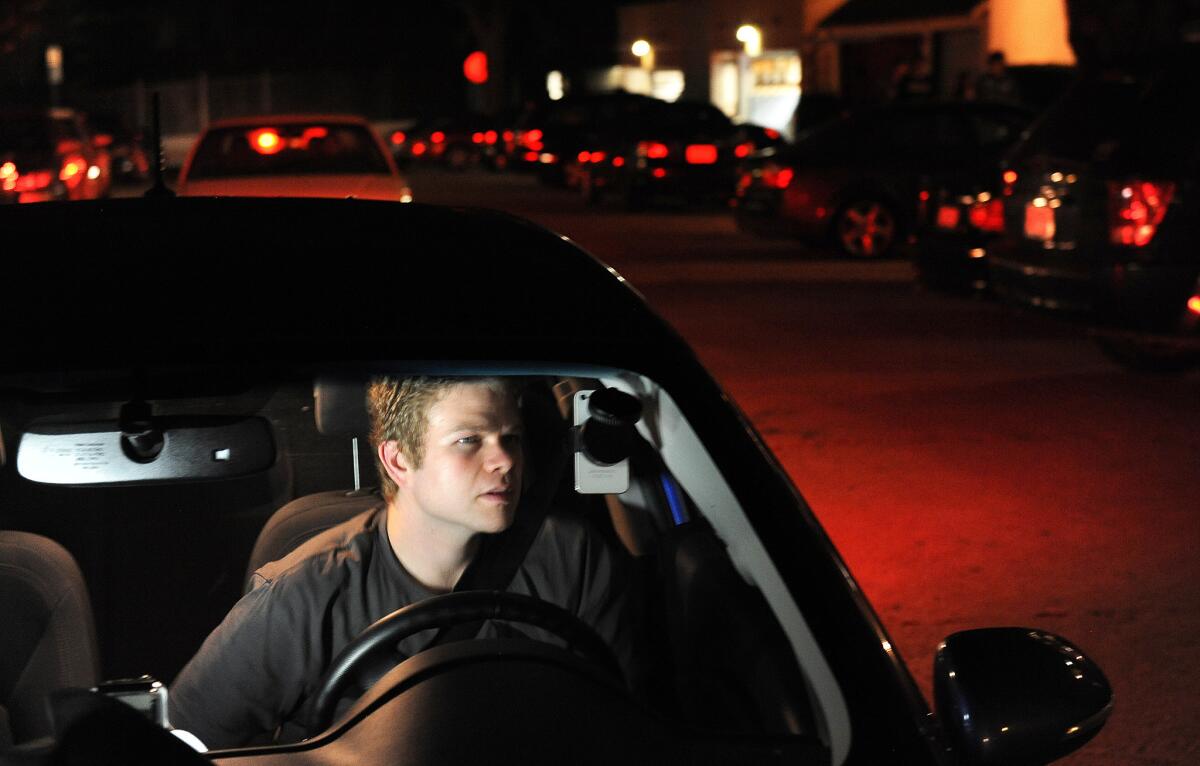Uber, Lyft agree to revised measure requiring insurance coverage

- Share via
Reporting from Sacramento -- — After weeks of negotiations, Internet-based ride-sharing companies reached agreement with state lawmakers on how much insurance and what kind of coverage the new transportation services should carry.
The deal, which is expected to pass the Legislature this week, was crafted under the direction of the office of Gov. Jerry Brown, said people familiar with the legislation but not authorized to speak publicly.
Insurers and consumer advocates said they supported the compromise because it guarantees that drivers for companies such as Uber and Lyft would not rely on their own private auto insurance while actively monitoring their smartphones in search of fare-paying passengers.
Uber and Lyft said Wednesday afternoon that they removed their opposition to the bill, which is expected to be passed and signed by the governor if it remains in its current form.
The bill, AB 2293 by Assemblywoman Susan Bonilla (D-Concord), authorizes insurers to create new commercial insurance policies specifically for the burgeoning ride-sharing industry. Bonilla is supporting the latest amendments because they protect the users of ride-sharing services.
Insurers also like the deal, saying it bans the use of a driver’s personal insurance when the driver is using the car for commercial purposes, such as carrying paying passengers.
Drivers or their affiliated ride-sharing services would buy the basic policy, which provides liability coverage of $50,000 for death or injury suffered by a single person, $100,000 in coverage for all damages in one accident and $30,000 for property damage.
Ride-sharing companies had objected to earlier proposals requiring them to obtain coverage of as much as $750,000 simply when drivers are waiting to be connected with passengers.
Additionally, the transportation companies would purchase $200,000 in excess liability coverage when the driver’s policy is insufficient.
Accidents that occur when a driver is on the way to pick up a passenger or when the passenger is riding in the car would be covered by as much as $1 million of coverage purchased by the ride-sharing companies.
Nicole Mahrt, a spokeswoman for the Assn. of California Insurance Cos., praised the latest version of the bill because it would allow insurers to develop new products and “it balances consumer protection with innovation.”
The bill, if approved and signed into law by the governor, would take effect July 1.
Twitter: @MarcLifsher
More to Read
Inside the business of entertainment
The Wide Shot brings you news, analysis and insights on everything from streaming wars to production — and what it all means for the future.
You may occasionally receive promotional content from the Los Angeles Times.











